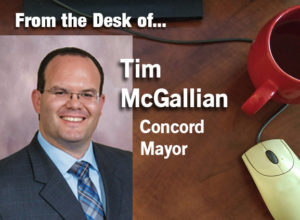Concord continues to devise plans to help the homeless
 CONCORD, CA (Oct. 14, 2021) — Tens of thousands of people across California are currently experiencing homelessness. Addressing this epidemic and trying to meet the needs of our unhoused residents is a challenge that local government agencies, nonprofits, businesses and individuals have been grappling with for years.
CONCORD, CA (Oct. 14, 2021) — Tens of thousands of people across California are currently experiencing homelessness. Addressing this epidemic and trying to meet the needs of our unhoused residents is a challenge that local government agencies, nonprofits, businesses and individuals have been grappling with for years.
Prior to the COVID-19 pandemic, about 2,300 individuals were experiencing homelessness in Contra Costa County. The pandemic and subsequent economic fallout made the situation even more dire for many.
Congregate shelters – including the Concord shelter that housed upwards of 75 – were closed due to health concerns. In addition, the temporary closure of businesses caused many people to lose their jobs and steady income, resulting in even more people at risk for losing their housing.
Thankfully, the state created Project Roomkey. The program housed unsheltered individuals safely and separately in hotel rooms, including nearly 200 rooms at two hotels here in Concord. Before the state’s program, Concord provided emergency funding early in the pandemic to house 37 vulnerable individuals at three local hotels.
Programs and services
Long before the pandemic, the city of Concord had been examining ways of addressing homelessness. This year alone, we have invested nearly $250,000 into a variety of programs and services, including the Contra Costa Crisis Center, Monument Crisis Center, the Food Bank of Contra Costa and Solano, RotaCare, STAND! For Families Free of Violence, Winter Nights Shelter and the Trinity Center. These programs provide food, shelter, emergency childcare, employment services, case management and more. Unhoused residents need these support services to get back on their feet and into permanent housing.
Concord previously shared the cost of a county outreach team known as CORE (Coordinated Outreach, Referral and Engagement) with the city of Walnut Creek. But thanks to the passage of Measure V, we have been able to fund our own full-time CORE team working exclusively in Concord since March 2021.
The CORE team visits unhoused residents in the places they live and offers access to a variety of services to help move people into housing, along with basic survival needs such as tents, sleeping bags, clothing, food, water and personal hygiene supplies. The team also serves as the entry point to the county’s coordinated system for unsheltered individuals.
Since going full-time in March, CORE has made contact with 334 unsheltered people in Concord and placed 24 in a shelter, hotel or motel. On Sept. 28, city staff provided an update on how the program is going. To view the presentation, visit cityofconcord.org/HomelessServices.
In addition to investing more resources into CORE, the City Council voted to fund a Mental Health Evaluation Team (MHET) pilot program in Concord, which began in June. Through the program, a county mental health specialist is paired with a city police officer. The two work proactively to provide referrals to outpatient mental health services and other resources to help individuals remain in the community and avoid future crisis intervention and interactions with law enforcement.
Homelessness not a crime
While the Police Department’s Community Impact Unit works closely with the county to assist our unsheltered residents, being homeless is not a crime.
Some of the concerns and complaints the city receives are related to encampments and unsanitary conditions. If you see an individual who poses a serious, immediate risk to themselves or others, call 911. If you see an individual who could benefit from the resources provided by our CORE team, contact them through 211 or email core@cchealth.org.
If you would like to report an encampment, use the city’s “Concord Connect” app (either through a smartphone or the city’s website). These notifications go to our Community Impact Unit, which coordinates a response with CORE and determines the need for abatement.
Unsheltered persons living in encampments are offered services through CORE; encampments that have unsafe or unsanitary conditions are then cleared.
On Nov. 2, the City Council will consider the addition of staff and resources to help us better address the homelessness challenge. The role of this new position would be to coordinate the city’s efforts and leverage partnerships with the county and other agencies to help the unsheltered.
We recognize that there is no one-size-fits-all approach to homelessness, and we are trying to determine what will work best in Concord.
We also know that one critical solution to homelessness is housing. The city has a state-mandated goal of adding more than 5,000 housing units by 2031, and we are developing a plan to get there through our Housing Element Update. To learn more, please attend one of our upcoming community meetings or visit concordhousingelement.org.
Addressing homelessness in our community is one of the city’s top priorities. We are committed to continuing to explore regional solutions in partnership with the county and the numerous community-based organizations that are working tirelessly to help our most vulnerable neighbors.
Mayor Tim McGallian can be reached at 925.671.2489 or email Tim.McGallian@cityofconcord.org
